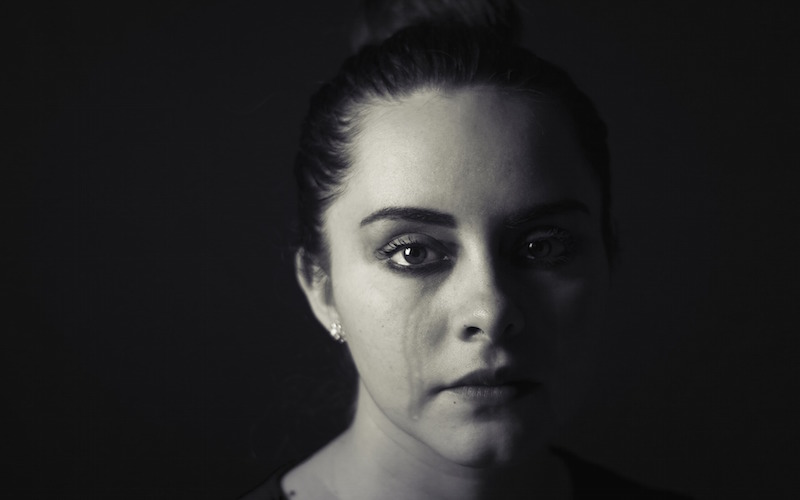Esha was working with an MNC her husband and in-laws forced her to quit after marriage- she thought she’ll convince Rahul later and join back soon.. but in 10 years of marriage- she couldn’t muster the courage- Rahul gets furious if she ever initiates this discussion- he wouldn’t give her any money for her personal expenses… on the other hand her mother-in-law took away all her jewellery.. Esha feels as if someone has cut her wings and caged her for life!
Ever since their daughter was born Ruhi’s world has changed, her in-laws and even Suresh – her husband have started taunting and mocking her- they even don’t love her daughter at all! And now her mother-in-law even threats of sending her back to her parent’s home along with Roshni- her daughter! Not that Ruhi is happy here, but the social stigma of a single mother scares her like anything- her aging parents wont be able to take it!
Sneha was getting tired with this everyday routine of drinking and physical assault by Mohit! But she didn’t know what to do, whom to approach- being an orphan, she didn’t have anyone as her family!
Esha, Ruhi n Sneha – their story might be different , but they are all victims of domestic violence- some or the other way…
What is Domestic Violence?
In simple words– Domestic violence is violence or other abuse by one person against another in a domestic setting, such as in marriage or cohabitation.Domestic Violence has its wide spread presence in India. Indian parliament came up with relevant laws.. to protect indian women. Protection of Women from Domestic Violence Act 2005 is an Act of the Parliament of India enacted to protect women from domestic violence. It was brought into force by the Indian government from 26 October 2006. The Act provides for the first time in Indian law a definition of “domestic violence”, The term ‘domestic violence’ has been used in widest sense which covers all forms of physical , sexual, verbal, emotional and economic abuse that can harm, cause injury to, endanger the health safety, life , limb or well-being either mental or physical of the aggrieved person. Apart from the victim herself, the complaint regarding an act or act of domestic violence can also be lodged by ‘any person who has a reason to believe that’ such an act was committed or is being committed. This means that neighbors, social workers, relatives can also take initiative. And the provisions of the Domestic Violence Act make sure that ‘no criminal, civil or any other liability’ lies on the informer, if the complaint is lodged in good faith. The PWDV Act 2005 recognizes all of these as domestic violence and aims at primarily providing protection to the wife or female live-in partner from domestic violence at the hands of the husband or male live-in partner or his relatives, the law also extends its protection to women living in a household such as sisters, widows or mothers. Domestic violence under the act includes actual abuse or the threat of abuse whether physical, sexual, verbal, emotional or economic.
Domestic Violence is a menace which we need to fight and stand up for our rights. But there are reasons known and unknown that has made this one of the most under reported violence- social stigma, emotional and economic dependence.. family pressure.. ignorance and fear of uncertainty to name a few- have been the reason(s) Indian women rarely speak up- or report such violence.
In this article my aim is to work on the awareness part. May be with little awareness and if we are better equipped with knowledge, more of us can fight against such violence, more of us can stand up for our rights.
What should you do if you are a Domestic Abuse Victim ?
1. First thing first make up your mind- any kind of abuse should be a big NO! we should be having ‘zero tolerance’ towards violence- it can be Physical, emotional, verbal.. sexual or economic abuse- whichever be it – report.
2. Start organizing, collecting and recording proof/evidence.. Law will only value proof/ evidence – the more evidence you have in the form of A/V recording of physical/ verbal/ emotional abuse, messages/ chat or call recordings etc.. proof of economic abuse- not providing for basic expenses … proof of marriage or cohabitation..proof of dowry in marriage.. if the stridhan has been occupied by the accused – which amounts to economic violence.. evidences of these will help you prove what you claim- “ that some form of violence has happened to you”
3.Reach out to Women’s Cell / Women’s police station/ police station nearest to you.. file an FIR or if they are reluctant or any jurisdiction issue arises- ask for Zero FIR they cannot deny ZeroFIR.. you may want to reach out to NGOs working in this field ( for example-Jagori in Delhi NCR doing good work).
4. The matter of your FIR you should write at home in a calm n cool mind so that you don’t miss out anything.. and do not forget to take a copy of your FIR.
5. You can only file FIR from the location where the violence happened or from your hometown or from a city where you are living or working- so you should be able to submit some proof of the same.. (But you can file a Zero FIR from any place)
6. In case of physical and sexual abuse– most important– get your Medical test done– irrespective of if you are able to file FIR – you can always get this done at the earliest..in case of physical or sexual abuse this is a MUST and most important proof to say the least.Medical has to be done at a government hospital, by a registered doctor- else it has no value..
7. You can even file a criminal case without lodging an FIR – in that case you would need to connect with a good lawyer who can guide you on the same..
8. In case of sexual abuse- evidence is important– besides Medical test- clothes sometime come as important proof so such clothes need to be preserved unwashed..
9. Remember you- as an aggrieved / victim- are entitled to legal aid and support from government. If you have been physically or sexually abused you are entitled to medical aid as well..
10. Remember as a victim/ aggrieved you have the right to know and understand what are your rights and aids in your favour- police is liable to update you the same- if they close the case- they MUST inform you about the same.
11. Remember- magistrate has been given powers to permit the aggrieved women to stay in her place of adobe and she can not be evicted by her male relatives in the retaliation.
12. The magistrate can impose monthly payments of maintenance. The respondent/accused can also be ordered to meet the expenses incurred and losses suffered by the aggrieved person and any child of aggrieved person as a result of domestic violence. It can also cover loss of earnings, medical expenses, loss or damage to property.

Today laws are stronger.Therefore in case of any abuse talk to people whom you can trust- share everything… Get a support- no harm in seeking support when in need… Take professional help wherever required. Any relation is a two-way affair- while you need to put in the best effort from your side- there is no point living in a abusive relation.. Take charge of your life.
Click here to find out about the types of Domestic Violence
Source:
Overview of the Protection of Women from Domestic Violence Act 2005
Basic Provisions Of Domestic Violence Act, 2005 – Manupatra Articles
poster: Majlis and mohim poster by scroll.in





